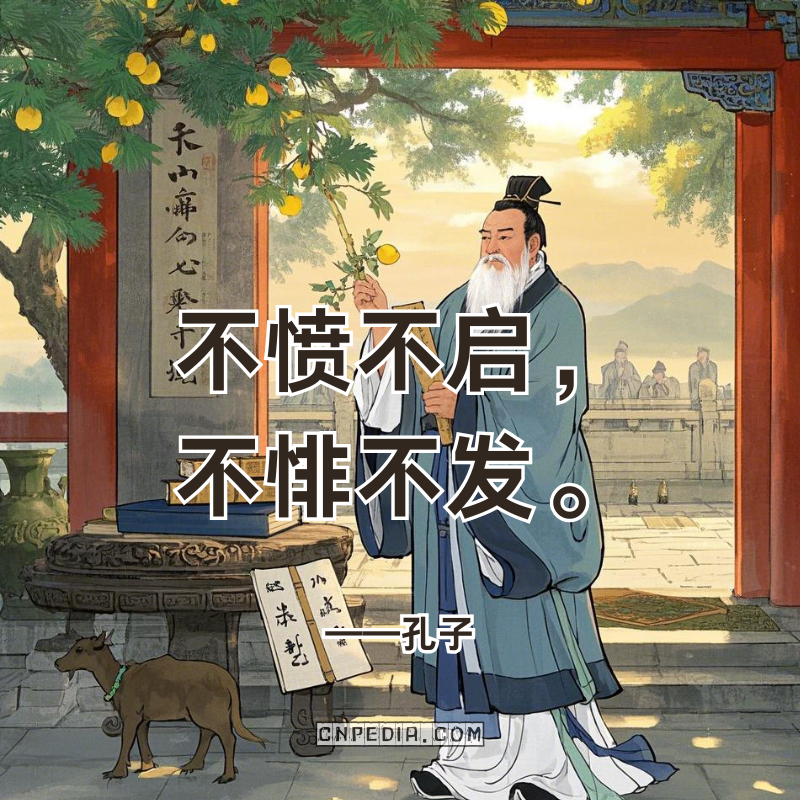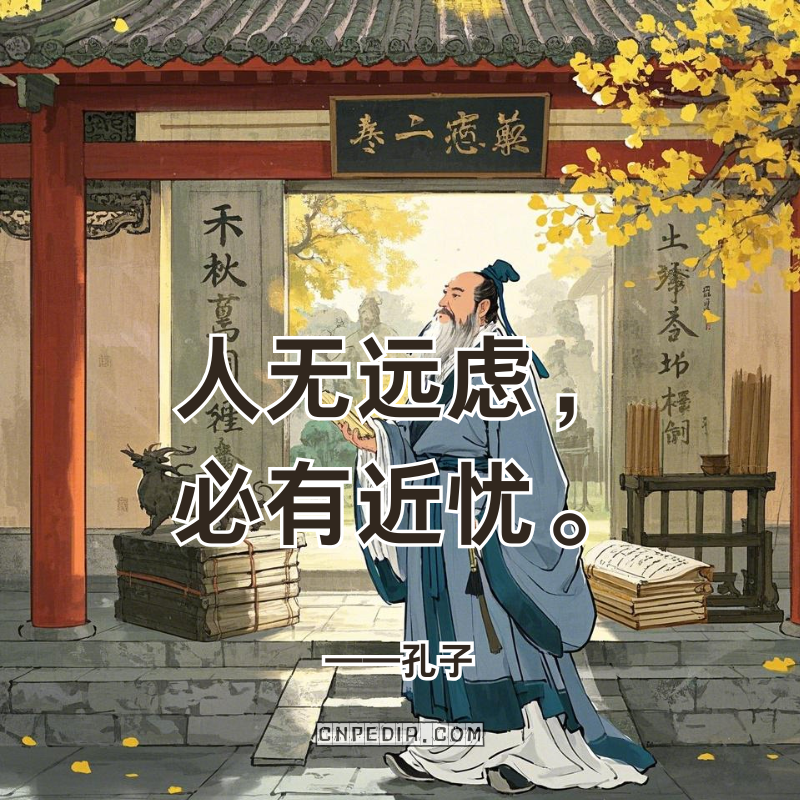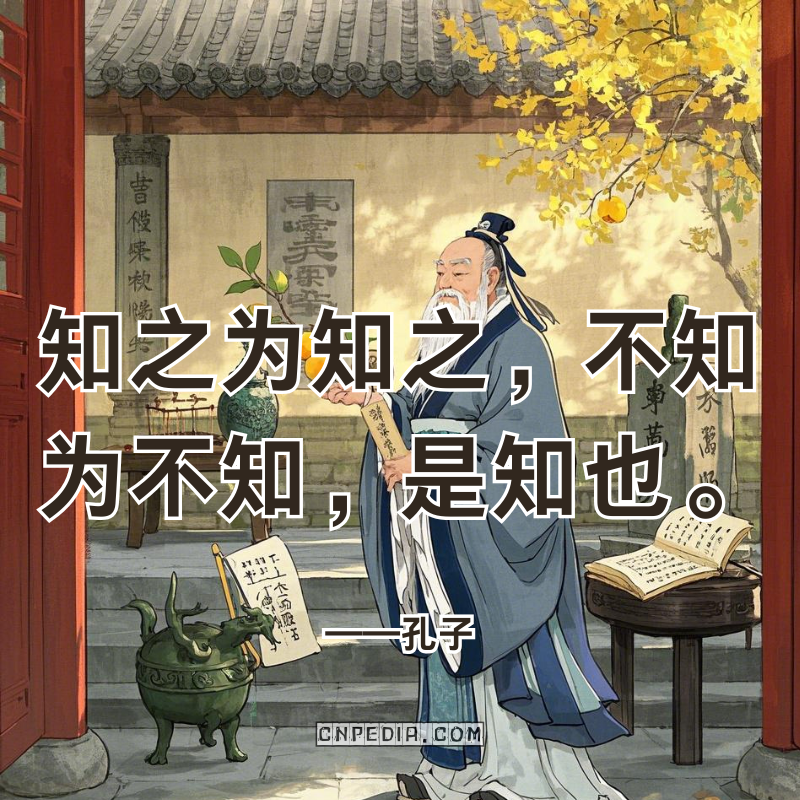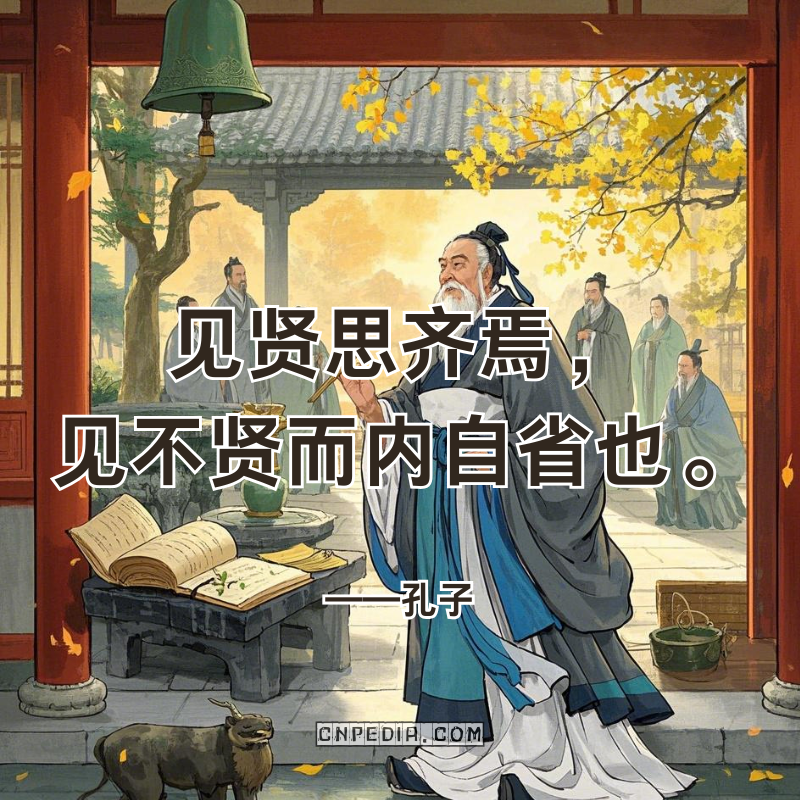67 Articles
Tags :Confucius Quotes Page 7

不愤不启,不悱不发。——孔子(bú fèn bù qǐ, bú fěi bù fā — Kǒngzǐ) Translation: “No enlightenment until frustration; no explication until articulation.” Explanation: Confucius’ pedagogical principle “No enlightenment until frustration; no explication until articulation” establishes the world’s earliest documented constructivist learning framework. The character 愤 (fèn) signifies the boiling point of intellectual struggle—when a learner’s cognitive dissonance becomes acute enough to crave resolution. Conversely, 悱 (fěi) represents the stammering attempt to verbalize half-formed insights, marking the critical window for instructional intervention. Together, these thresholds define what modern educators call teachable moments—a concept predating Western educational psychology by 2,500 years. This framework mirrors Lev Vygotsky’s Zone of Proximal Development (ZPD) but with a crucial distinction: Confucius prioritizes the learner’s emotional readiness over skill gaps....

人无远虑,必有近忧。——孔子(rén wú yuǎn lǜ, bì yǒu jìn yōu — Kǒngzǐ) Translation: “Without long-term vision, immediate crises emerge.”Explanation: Confucius’ axiom “Without long-term vision, immediate crises emerge” encodes a proto-systems theory of governance. The character 虑 (lǜ), composed of 虎 (hǔ, tiger) and 思 (sī, thought), visually merges a predator’s calculated pacing with human cognition—a metaphor for strategic patience. Unlike reactive decision-making, this tiger-mind deliberation advocates cyclical planning where today’s actions are evaluated against decadal consequences, creating what modern strategists call anticipatory governance. Ancient Chinese rulers institutionalized this wisdom through hydraulic engineering and grain reserve systems. The Dujiangyan irrigation project (3rd century BCE), still functional today, exemplifies 虑 in action—its designers anticipated both flood control and soil fertility needs for 20 generations....

知之为知之,不知为不知,是知也。——孔子(zhī zhī wéi zhī zhī, bù zhī wéi bù zhī, shì zhī yě — Kǒngzǐ) Translation: “To know you know, and know you don’t know—that is true knowing.” Explanation: Confucius’ dictum “To know you know, and know you don’t know—that is true knowing” crystallizes an epistemology of radical intellectual humility. Far from advocating ignorance, this paradox reframes knowledge as a dynamic process of self-awareness. By distinguishing between verified understanding and acknowledged uncertainty, it establishes a mental framework for resisting cognitive arrogance—a concept that would later underpin the scientific method’s emphasis on falsifiability. This “negative capability” philosophy predates Socrates’ famous “I know that I know nothing” by decades, yet diverges in cultural impact. While Socratic questioning sought external truths through dialogue,...

见贤思齐焉,见不贤而内自省也。——孔子(jiàn xián sī qí yān, jiàn bù xián ér nèi zì xǐng yě — Kǒngzǐ) Translation: “See virtue—aspire to equal it; see vice—introspect to correct it.” Explanation: Confucius’ aphorism “When you see virtue, aspire to equal it; when you see vice, introspect to correct it” establishes humanity’s earliest documented model of social-cognitive development. The first clause activates a self-improvement mechanism through moral observation: witnessing exemplary qualities like integrity or compassion triggers not mere imitation, but an intrinsic drive toward ethical wholeness. This dynamic process of social mirroring transforms abstract morality into actionable growth pathways, predating modern behavioral science by millennia. This ancient framework remarkably aligns with contemporary psychology. While Albert Bandura’s 20th-century observational learning theory emphasized acquiring behaviors through role...

己所不欲,勿施于人。——孔子(jǐ suǒ bù yù, wù shī yú rén — Kǒngzǐ) Translation: “What you do not desire, do not impose upon others.”Explanation: This principle, known as the Silver Rule (the negative counterpart to the Golden Rule), forms a cornerstone of reciprocal ethics across global philosophical traditions. Attributed to Confucius in the 5th century BCE, it establishes moral boundaries through prohibition rather than prescription. Unlike Christianity’s proactive injunction to “love thy neighbor,” which urges affirmative benevolence, the Silver Rule carves out negative moral space—a framework of restraint that prioritizes avoiding harm over mandating virtue. By focusing on what not to do, it offers a minimalist yet universal ethical guideline, adaptable to diverse cultural and temporal contexts. The Silver Rule’s influence permeates two...

学而时习之,不亦说乎?——孔子(xué ér shí xí zhī, bú yì yuè hū — Kǒngzǐ) Translation: “To learn and timely practice—is this not joy?”Explanation: Confucius’ maxim “To learn and timely practice—is this not joy?” challenges the ritualized, rote-learning traditions of the Western Zhou aristocratic education system, which prioritized memorization of ceremonial texts over practical application. By redefining xi (习, “practice”) as active implementation rather than passive repetition, Confucius reframed education as embodied knowledge—a dynamic unity of knowing and acting (zhi xing he yi). The character 习 originally depicted “wings flapping” in oracle bone script, symbolizing knowledge taking flight through real-world engagement. This philosophy anticipates modern pedagogical theories like heutagogy (self-directed learning), where learners internalize and adapt knowledge through experiential cycles of reflection and practice....

君子和而不同,小人同而不和。——孔子(jūn zǐ hé ér bù tóng, xiǎo rén tóng ér bù hé — Kǒngzǐ) Translation: “The noble harmonize without uniformity; the petty uniformize without harmony.” Explanation: Confucius presents a dialectical vision of social cohesion by contrasting the moral conduct of junzi (noble individuals) and xiaoren (petty-minded individuals). The junzi cultivate harmony (he) not by imposing sameness but by embracing diversity and mutual respect, reflecting the inclusive ethos of the Zhou Dynasty’s ritual-music system, which balanced hierarchical order with cultural pluralism. In contrast, xiaoren seek superficial uniformity (tong) through coercion or rigid conformity, mirroring the hegemonic power politics of Confucius’ era during the Spring and Autumn Period, where authority suppressed dissent. This philosophical distinction underscores Confucius’ belief that true unity arises...






